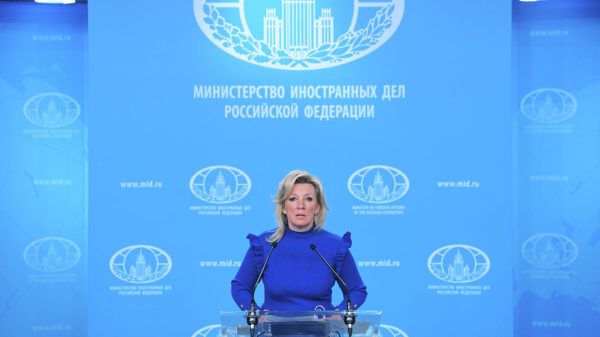 It took the founders two years to find their first sponsor for the award. Photo: Steve Dunlop
It took the founders two years to find their first sponsor for the award. Photo: Steve Dunlop
Big companies were once afraid to support the Black British Business Awards.
“When we launched this awards program, there were companies that refused to support us because they didn't use the word “ “black” in its corporate lexicon,” he said. recalls founder Sophie Chandauka MBE.
“They found it offensive and didn't want to talk about it. They were uncomfortable even nominating someone.”
Almost a decade later, the Black British Business Awards, of which The Telegraph is an official media partner, are now supported by some of the UK's biggest corporations.
JP Morgan, Barclays and Goldman Sachs are partners, as are former and current employers Chandauka, Baker McKenzie and Meta.
The October ceremony will mark the 10th anniversary of the award and celebrate achievements more than 350 business leaders. , companies and rising stars.
The idea for the awards first emerged during the 2012 Summer Olympics in London.
While the world's eyes were on the successes of the UK's multicultural capital, Chandauka and co-founder Melanie Eusebe MBE were struck by the fact that the narrative in the City was very different.
Lack of black people in top positions. positions in FTSE 100 companies meant there was a perception that they were “not making a particularly meaningful contribution to the British economy,” says Chandauka, head of US risk management and intelligence at Meta.
Chandauka and Eusebe were perplexed: the talent exists, so why aren't black professionals making it to the top?
 The 2022 awards marked the first time when, after the pandemic, the event was able to be held in person. Photo: BBBA
The 2022 awards marked the first time when, after the pandemic, the event was able to be held in person. Photo: BBBA
“Something was happening in the middle that meant we were marginalized. We may have felt the need to withdraw or felt we couldn't participate or progress,” says Chandauka.
“When you started talking to recruiters and senior leaders about what was going on, their response was often lazy and quite simple: “We don’t know where to find talent.” The talent pipeline is weak. Talent does not exist.”
The Black British Business Awards were designed to change this. “We wanted to show that we exist,” says Chandauka.
The challenge was to convince companies to support our vision. It was even harder to realize that their careers were in jeopardy.
“It was so scary because Mel and I were told that this would be a career limiter,” says Chandauka.
A corporate lawyer trained by international law firm Baker McKenzie, she did not take the warnings lightly.
However, Chandauka drew inspiration from her early childhood in Zimbabwe, a country that gained independence from colonial rule in 1980. She also drew strength from South African leaders, including Nelson Mandela, who were brave enough to challenge the status quo.
“When you have a platform and a voice, you have to use it to point out those things that can be done. for the benefit of all interested parties.»
Chandauka and Eusebe persisted, confident in their ability to find new jobs if their employer did not like their activity.
 Richard Branson contributed to the increase in awards when he shared Chandauki's article on social media. Photo: Joe Skipper/Reuters
Richard Branson contributed to the increase in awards when he shared Chandauki's article on social media. Photo: Joe Skipper/Reuters
“We knew this was a change effort and we were changemakers,” says Chandauka.
< p>It took them two years to find their first sponsor, EY , where Esebe worked as a consulting manager for almost four years until 2013.
However, it was billionaire Richard Branson who “really gave us our wings.” says Chandauka. In 2014, the Virgin founder shared Chandauka's article about the awards on Twitter, now known as X.
Chandauka's mission to elevate and promote the role of black people in business was recently supported by the organization's renewed focus on race in the wake of the pandemic and the murder of George Floyd in 2020.
“In the UK we have been very polite and reluctant to have bold conversations about the systemic issues that need to be addressed in business. George Floyd changed that,” she says.
Having spent the last decade outlining the issues, Chandauka is now focused on taking action.
The Network of Networks (TNON), a sister organization of the award, is now time is equipping companies with the skills needed to help ethnic minority professionals. overcome obstacles at every stage of your career.
For employers, Chandauka's message is simple: “It is the small decisions you make every day that will make the difference. Whom do you decide to invite to a meeting, who do you buy coffee for? When the deal happens, who will you choose to participate in the deal.
“We change systems and culture through everyday actions if we do them consistently over time.”
She adds: “Sometimes there is a misunderstanding that I only care about black people. I'm excited about working for organizations that create environments for the most amazing teams.»


























































Свежие комментарии